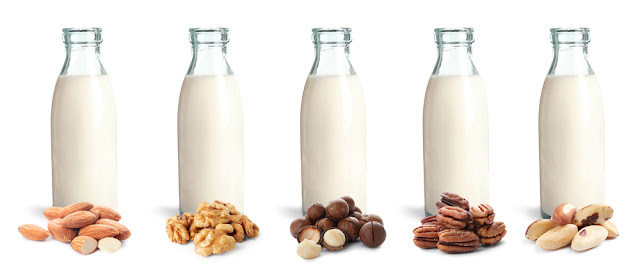Plant based milk products
Over the past decade, non-communicable diseases (NCDs) have increased in many parts of the world. Therefore, emerging consumer demand for healthy foods and beverages has led to a new field of research to develop functional foods. Functional foods are those foods or food components that are scientifically recognized as having physiological benefits beyond those of essential nutrition.
Plant-based milk or non-dairy milk is a type of functional beverage that can be used as an alternative to cow milk. Due to several reasons such as cow milk allergies, lactose intolerance, calorie concerns, and prevalence of hypercholesterolemia plant-based milk alternatives are well established as beverages and as ingredients in food recipes.
Cereals (oat, rice, corn, spelled), legumes (soy, peanut, lupin, cowpea), nuts (almond, coconut, hazelnut, pistachio, walnut), seeds (sesame, flax, hemp, sunflower) and pseudo-cereals (quinoa, teff, amaranath) are the five major categories of plant-based milk alternatives. Plant-based milk is produced from the size reduction of plant materials and extraction in water. Then the fluid is homogenized to distribute particles in a range of 5-20 µm, which can imitate cow milk's appearance and consistency.
Plant-based milk products contain functionally active components with health-promoting properties. For example, isoflavones in soy milk have a protective effect against cancer, cardiovascular disease, and osteoporosis, and phytosterols have cholesterol-lowering properties. Phenolic compounds in peanut milk have a protective role against oxidative damage and conditions such as coronary heart disease stroke, and various cancers. Phytosterols, especially β-sitosterol and γ-oryzanol in rice milk can increase solution viscosity and can delay gastric emptying time, increasing gastrointestinal transit time which is associated with their reduced blood glucose level.
However, there are limiting factors in the acceptance of plant-based milk products such as poor emulsification ability, presence of inhibitors, beany flavor, the low solubility of proteins, and bitterness. Technological interventions such as vacuum treatment at high temperatures, hot grinding, blanching, the addition of flavor compounds, denaturation, and inactivation inhibitors can be used to resolve limiting factors of plant-based milk production. Moreover, the nutritional quality of plant-based milk is lower than that of cow milk. Fortification of plant-based milk with nutrients and maintaining the bioavailability of nutrients is a promising way to improve the nutritional quality of plant-based milk.


Post a Comment